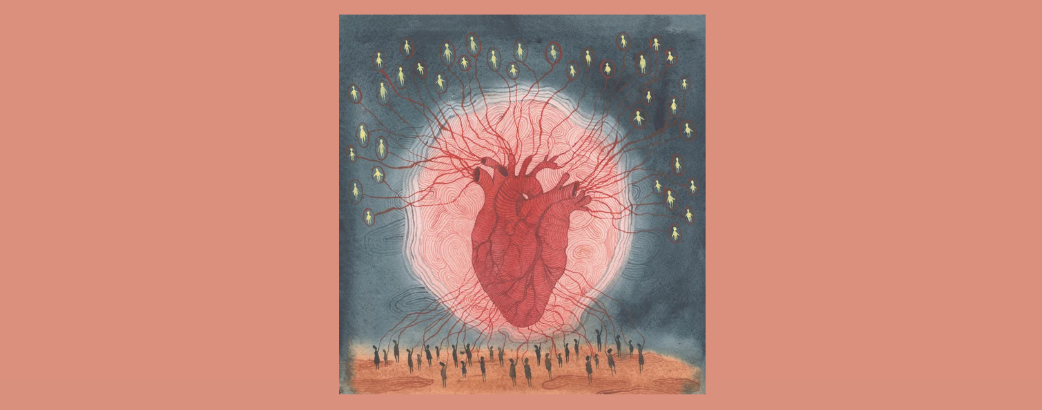
“Sow in Tears”
Why do we cry? There is something evolutionary and primal in us that understands tears as a way of communicating and bonding. And while some animals can tear up from an irritant in the eye, human beings are the only species that sheds tears from emotion. To cry—is literally to be human.
In the Torah portion Miketz, we see our patriarch Joseph cry for the first time. He did not cry earlier when he’s thrown into a pit by his brothers. Or sold into slavery. Or imprisoned on false charges of adultery by Potiphar’s wife. Joseph does not cry at the peak of his own suffering.
No, it’s only when Joseph, now a powerful man in Egypt, sees his older brothers that he weeps for the first time. But he turns away from them and doesn’t let them see his tears. The second instance, when he sees his younger brother Benjamin, is even more extreme. He is so overcome that he flees into another room and weeps there. Joseph again hides his tears, and his true self, because he’s too afraid to reveal his heart. When we get to the climactic moment of Joseph’s story, when he asks his brothers if their father is still alive, Joseph breaks down and weeps so loudly before them that his sobs could be heard in Pharaoh’s house. It is only then, that Joseph announces. Ani Yosef. I am Joseph. His tears opened the floodgates of his heart. His tears allow him to make peace with his brothers.
Since October 7, I have shed more tears than I can remember. I cried hearing stories from families who lost loved ones. I cried seeing pictures of children who were hostages. I cried reading stories of selflessness and heroism of Israelis. I was crying only for my own people. The brutality on October 7 and the subsequent pain felt so enormous—the response from the rest of the world, from campuses to the UN, so callous and hypocritical—that I didn’t have emotional space or tears left for the other side. It almost felt too threatening. Like a betrayal.
But we must open our hearts and weep for their suffering as well because our selective tears contribute to a vicious cycle of dehumanization. Think of the pain and outrage we feel when others refuse to believe the atrocities Israel faced on October 7—refuse to watch the film. To condemn the gender violence. We called out to the world: You don’t have to agree with Israeli policies! Just see the suffering of your fellow human beings!
Well, I say the same to us: Put aside who deserves blame, and just witness the enormous human suffering in Gaza. I wept when I learned that parents in Gaza have been writing the names of their children on their arms and legs, so that they can be identified under the wreckage if the worst happens. I hear the echo of Joseph’s pain in asking, “Is my father still alive?’ in every parent or child who just wants to know their loved ones are safe. To cry is to see their fellow humanity. To cry is to preserve our own as well. This is not a political or military strategy. It is a spiritual one, for our souls, so we might imagine a different day after.
It may sound strange, but I know the path to Israel’s eventual wellbeing will be paved by our tears. I know it because the famous Psalm 126 recalls that Jewish memory for us: Shir HaMa’alot b’shuv Adonai Et Shivat Tzion, Hayinu K’cholmim. “When God restored the well- being of Zion, we were like dreamers.” But the end of the Psalm tells us something extraordinary—that the wellbeing of Zion is restored because of our tears. It says: “Those who sow in tears will reap in joy. Those who go out weeping, carrying seeds to sow, will return with songs of joy, carrying sheaves with them.”
The psalm instructs us to go out weeping—in the most desolate places—the fields of the Nova music festival. The orchards of Kibbutz Be’eri, now emptied of residents, the rubble of Gaza City— with an audacious act of hope—carrying seeds. And our weeping—our tears of empathy and humanity—is what waters those tiny seeds, so that some day we, like dreamers, might reap a different harvest.
Rachel Goldberg-Polin, the mother of Hersh, still held in captivity, shared this poem at the U.N. There is no more profound way to express the power of tears than her words:
There is a lullaby that says your mother will cry a thousand tears before you grow to be a man.
I have cried a million tears in the last 67 days.
We all have.
And I know that way over there
there’s another woman
who looks just like me
because we are all so very similar
and she has also been crying.
All those tears, a sea of tears
they all taste the same.
Can we take them
gather them up,
remove the salt
and pour them over our desert of despair and plant one tiny seed.
A seed wrapped in fear,
trauma, pain,
war and hope
and see what grows?
Could it be
that this woman
so very like me
that she and I could be sitting together in 50 years
laughing without teeth
because we have drunk so much sweet tea together
and now we are so very old
and our faces are creased
like worn-out brown paper bags.
And our sons
have their own grandchildren
and our sons have long lives
One of them without an arm
But who needs two arms anyway?
Is it all a dream?
A fantasy? A prophecy?
One tiny seed.
Rabbi Angela Buchdahl, Chief Rabbi of Central Synagogue, New York, in a Shabbat sermon, November 2023.
ART: YAARA ESHET



